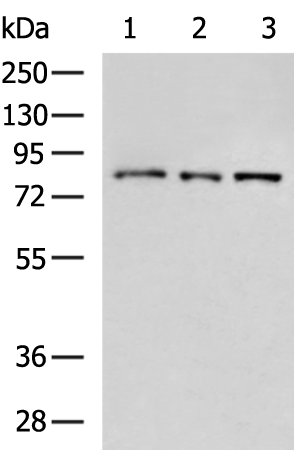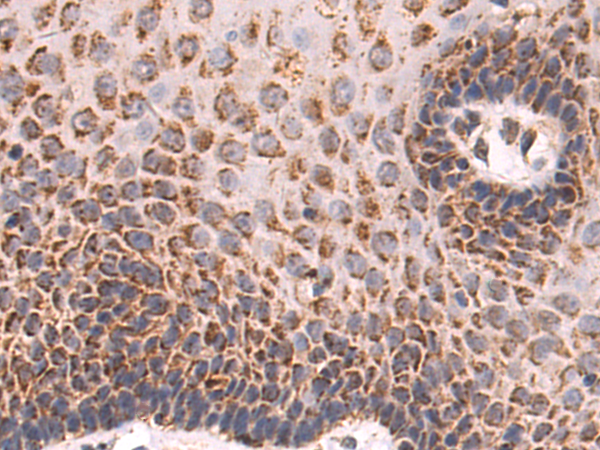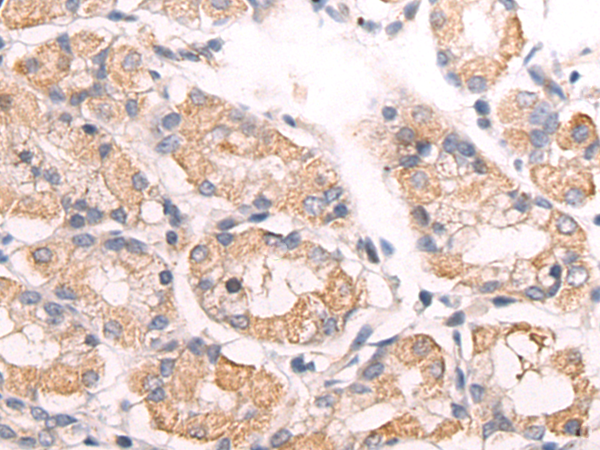


| WB | 咨询技术 | Human,Mouse,Rat |
| IF | 咨询技术 | Human,Mouse,Rat |
| IHC | 1/50-1/200 | Human,Mouse,Rat |
| ICC | 技术咨询 | Human,Mouse,Rat |
| FCM | 咨询技术 | Human,Mouse,Rat |
| Elisa | 1/5000-1/10000 | Human,Mouse,Rat |
| Aliases | ATX1; SCA1; D6S504E |
| WB Predicted band size | 87 kDa |
| Host/Isotype | Rabbit IgG |
| Antibody Type | Primary antibody |
| Storage | Store at 4°C short term. Aliquot and store at -20°C long term. Avoid freeze/thaw cycles. |
| Species Reactivity | Human, Mouse, Rat |
| Immunogen | Fusion protein of human ATXN1 |
| Formulation | Purified antibody in PBS with 0.05% sodium azide and 50% glycerol. |
+ +
以下是3篇与ATXN1抗体相关的文献信息及摘要概括:
1. **《Phosphorylation of ATXN1 at Ser776 modulates its interaction with RNA-binding proteins》**
- 作者:Duvick, L., et al. (2010)
- 摘要:研究利用特异性ATXN1抗体发现,其Ser776位点的磷酸化修饰可调控与RNA结合蛋白的相互作用,影响SCA1疾病中突变蛋白的毒性。
2. **《Antibody-based characterization of ATXN1 proteoforms in spinocerebellar ataxia type 1》**
- 作者:Cummings, C.J., et al. (1998)
- 摘要:通过开发多种ATXN1抗体,揭示突变型ATXN1在SCA1患者脑组织中形成核内包涵体,并干扰正常蛋白的细胞定位。
3. **《Regional and cellular mapping of ATXN1 isoforms in the mouse brain》**
- 作者:Serra, H.G., et al. (2004)
- 摘要:利用亚型特异性抗体进行组织染色,发现ATXN1在不同脑区的表达差异,提示其在小脑浦肯野细胞中的异常积累与SCA1病理相关。
注:以上为基于领域经典研究的概括性描述,实际文献引用需通过PubMed或Web of Science核对具体标题及作者信息。建议结合关键词“ATXN1 antibody”、“phosphorylation”、“proteoform”或“SCA1”进一步检索。
×